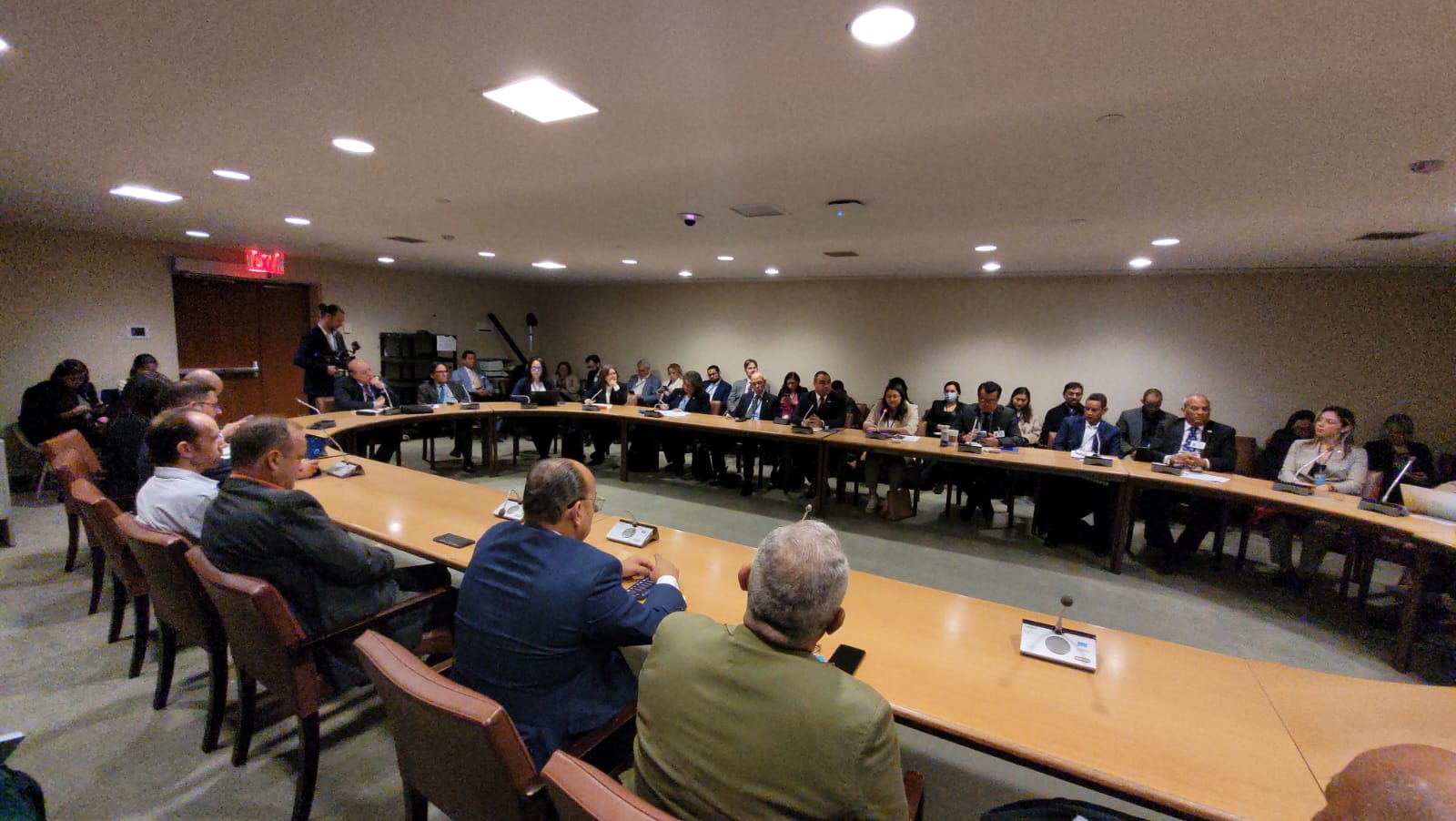Briefing note
The side event "Promotion of Water Security in the Central American Integration System (SICA), Central America and the Dominican Republic: challenges and opportunities" held last Thursday, March 23, had the objective of displaying regional efforts to increase the economic well-being, improve social equity, move towards long-term sustainability and reduce water-related risks.
The event, organized by the executive secretariat of the Central American Commission for Environment and Development (CCAD), facilitated the presentation and socialization of national and regional efforts to increase economic well-being, improve social equity, move towards long-term sustainability and reduce water-related risks. At the same time, the main challenges and opportunities that arose to promote and ensure water security from a regional integration perspective were discussed with environmental authorities and decision-makers in the region.
The event began with the presentation of the CCAD Water Agenda for Regional Water Security from the Regional Environmental Framework Strategy (ERAM). This presentation was given by Mr. Jair Urriola Quiroz, CCAD Executive Secretary, who highlighted the diagnosis and strategy of the Agenda. Then, the High-Level Ministerial Panel took place where various ministers from the Central American region discussed national initiatives in water security and the main challenges. Regarding the ministers' interventions, Mr. Fernando López, Minister of the Environment and Natural Resources of El Salvador, invited the countries to continue working on water issues since it does not distinguish borders, which is crucial in the region for containing tri-border and bi-border basins. At a national level, the minister stressed the creation of the Salvadoran Water Authority (ASA) as the main premise of the Water Law. Next, Mr. Milciades Concepción, Minister of the Environment of Panama, highlighted the importance of integrated management of water resources and shared the action plan for Panama's IWRM 2022/2026 that is currently being developed. Next, Mr. René Mateo, Vice Minister of Soils and Water of the Ministry of the Environment of the Dominican Republic, highlighted the problems the country has faced in the efficiency and use of water, and presented the Water Cabinet formed to create a comprehensive work schedule. For this, the government has determined that 9 billion USD is required over a 15-year horizon, which is a great challenge for its domestic economy. On behalf of Honduras, Ms. Emilia Dvicente Mendoza, from the Secretariat of Energy, Natural Resources, Environment and Mines, shared the update of the national water accounts that have been carried out, the strengthening of basin organizations, and highlighted the work that has been done in the valuation of water in the country.
After the ministerial panel, the director of ECLAC's Natural Resources Division, Jeannette Sánchez, presented the challenges and opportunities for water security in the SICA region, with assessments and strategic perspectives from a multidimensional approach. The director highlighted the water transition that ECLAC proposes, which is fully aligned with the ERAM and includes four pillars: 1) universalize access to safely managed drinking water and sanitation, 2) ensure equity in the affordability of services with progressive social tariffs and subsidies for the most vulnerable segments, 3) reduce negative externalities related to pollution and methane emissions from wastewater, and 4) transform the current linear water management into a circular one.
Then, Mrs. Sánchez shared ECLAC's vision of the need to increase and improve investment in the drinking water and sanitation sector, stressing that it is not only economically profitable, but also has other significant social and environmental benefits. The foregoing, in order to support countries in their investment decisions to promote a transformative recovery aligned with the principles of the 2030 agenda. To close, the director emphasized that there is not only the potential to generate green jobs, but that having coverage of these services helps reduce infections, improves public health and reduces inequality. At the same time, greater energy efficiency in a sector that depends on fossil fuels would help to reduce operating costs and redirect resources towards the renovation and/or maintenance of infrastructure that requires improvements.
The event was attended by environmental authorities from the SICA Region, environmental officials from the region, representatives of specialized entities and international technical agencies, and was moderated by Gandhi Montoya from the CCAD Executive Secretariat.



